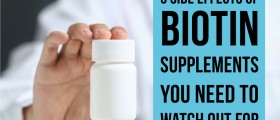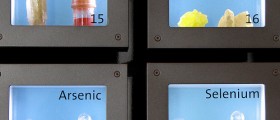Information on Selenium
Selenium occurs naturally in the soil and it is actually one of the toxic nonmetallic elements. It is a certain type of mineral required by the human body, but only in small amounts, so it is commonly ingested via numerous different types of food. It can also be obtained by drinking water. Some food items which contain selenium include shellfish, whole grains and Brazil nuts. Selenium is very important for numerous different roles and processes inside the human body. It is essential in the maintenance of elasticity of the tissues in the body. It usually gets concentrated in the thyroid gland, muscles, liver and the kidneys. Selenium is very efficient in reducing the risk of cancer, boosting the functioning of the immune system and preventing the occurrence of various different types of infections. Selenium is usually consumed as an inorganic form, and the two existing variants include selenite and selenate. Selenite is characterized by better retaining properties, while selenate gets absorbed much more easily.
Health Benefits of Selenium
Selenium is very important for the human body because it provides it with numerous different types of health benefits. It may come in very handy when it comes to prevention of various medical conditions such as heart strokes, acne, dandruff, shingles, cold sores, different types of cancer, gray hair, muscular degeneration, arthritis, miscarriages, AIDS, HIV and heart diseases. Selenium is also known for its potent antioxidant properties so it may come in very handy when it comes to fighting off the free radicals and reducing the amount and severity of damage they cause on a cellular level within the human body. Daily requirements for healthy female adults are 55 micrograms. Male adults should ingest 70 micrograms of selenium per day. The amount of selenium recommended for children is 10 to 30 micrograms per day. One should always consult the doctor before taking any selenium supplements because they need to be dosed carefully so as not to cause more bad than good.
Selenium Side Effects
Selenium is safe when it is used in moderate amounts and when a person sticks with the prescribed dosage. If a person ingests too much selenium it may lead to selenium toxicity which can be characterized by certain symptoms such as abdominal pain, nail brittleness, hair brittleness, metallic taste in the mouth, cardiac arrest, skin redness, garlic odor, weight loss, irritability, shakiness, muscle tenderness, fatigue, hair loss, nausea, vomiting, swelling of the throat and mouth, breathing difficulty, wheezing, hives skin rashes and other allergic reactions.

















Your thoughts on this
Loading...